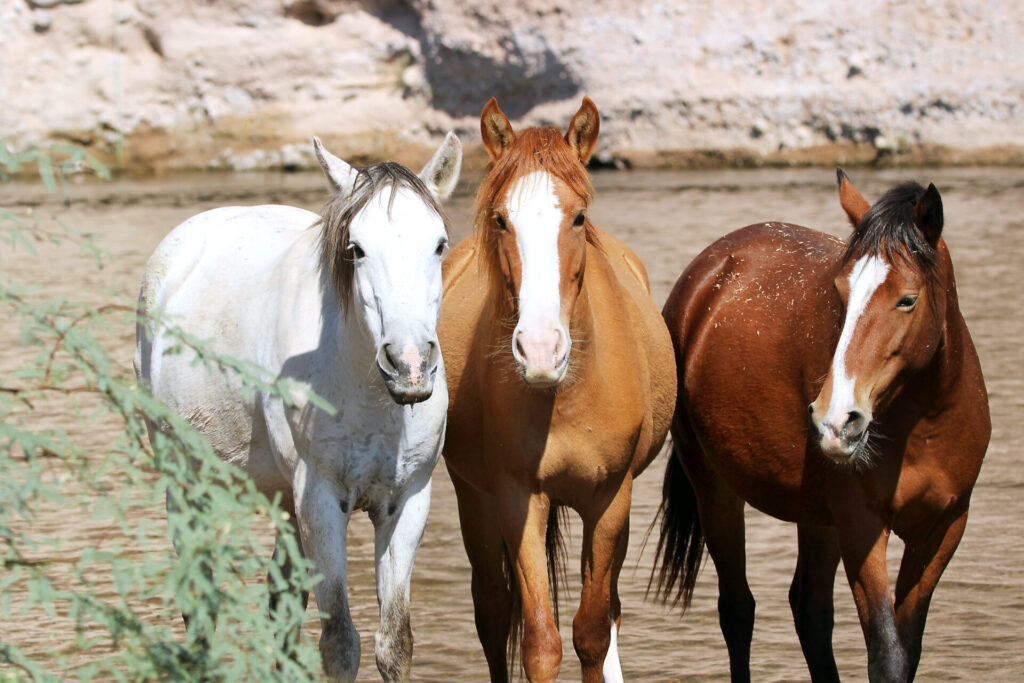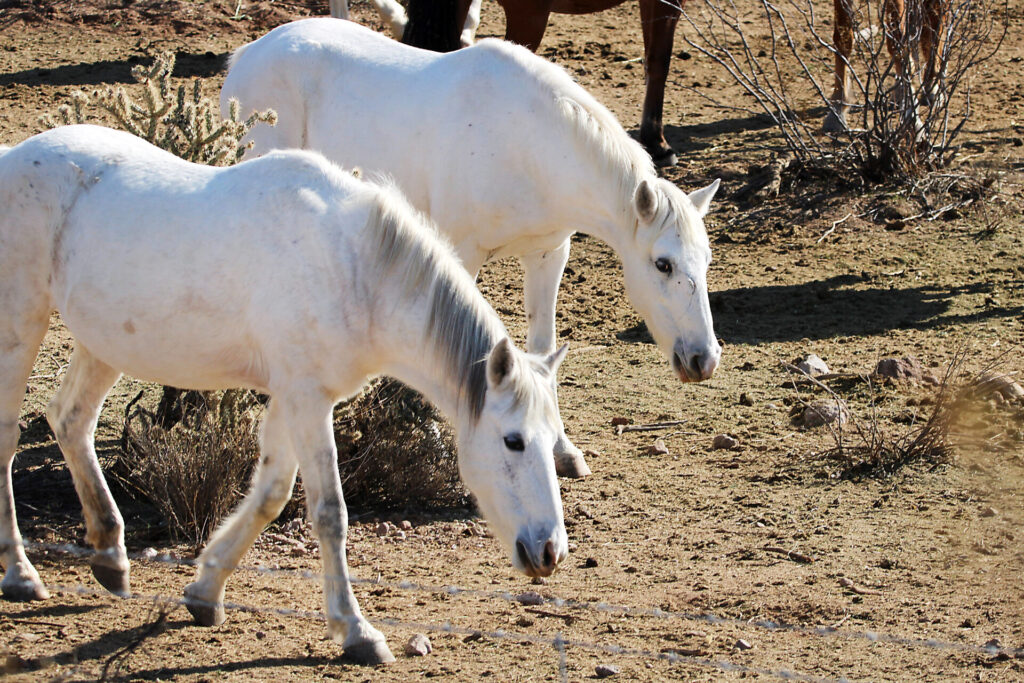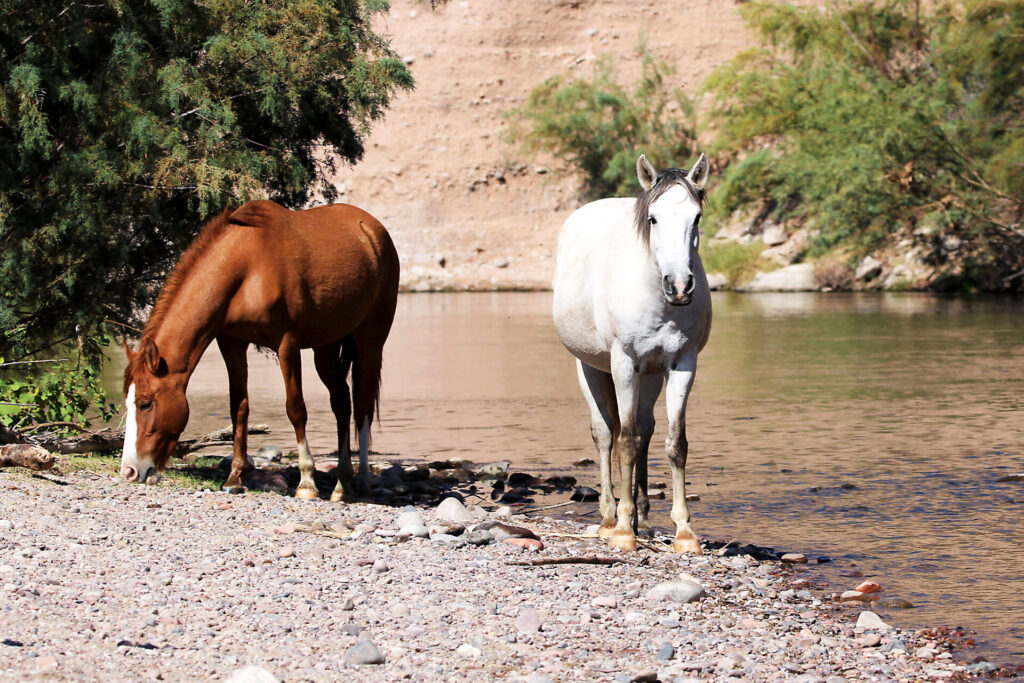Public’s help sought in ongoing battle to keep herds wild and free
Observing wild horses in and around the lower Salt River of the Tonto National Forest is always a delight. An iconic symbol of the American West, the horses’ majestic beauty represents strength, courage and freedom. The Salt River herd is descended from the Spanish horses brought to Arizona by Spanish missionary Father Eusebio Kino in the 1600’s.
Today, the horses roam the 20,000 acres on both sides of the lower Salt. Sometimes it takes a bit of luck to find them, but parking lots are available at five of the seven recreation sites (Coon Bluff, Goldfield, Blue Point, Pebble Beach and Water Users) along Bush Highway. The horses don’t stay in one place for very long due to their migrating patterns. Although many people love the horses, Simone Netherlands, president and founder of Salt River Wild Horse Management Group, said minding the horses’ humane management is a never-ending battle.

Some organizations would rather get rid of wild horses than let them remain in the wild. The management group, meanwhile, has been instrumental in protecting the horses for the last few years, battling for their safety and giving them a voice. Working with Congress and federal and state governments, today the Salt River wild horses are protected under Arizona Revised Statute 3-1491 (aka the Salt River Horse Act). The group manages the horses under contract with the Arizona Department of Agriculture.


“We battle to keep these horses free,” Netherlands said. “One of the ways we do that is to help stabilize the population through humane fertility control. We went from 109 foals in 2019 to just two in 2023.” Maintaining fertility control is one of the agreements with the Forest Service and the AZDA. Additionally, during times of limited natural resources, the group provides highly-needed certified weed-free hay to maintain the health of the horses. What can the public do to help? “We still need to give horses a voice,” Netherlands said. “… by donating money, sponsoring a horse through our group or calling their legislators. I advise people to go beyond their donations and really be engaged. “The battle is ongoing and what keeps them wild and free is the voice of the public. Our biggest mission is to change the course of history for them. We must fight for them, they have been here for centuries.” Netherlands also cautioned: “Never get closer than 50 feet to the horses and don’t feed them.
If you run across an injured horse, the group’s website and call its hotline at 480-868-9301. For information OR to make a donation, visit https://saltriverwildhorsemanagementgroup.org/

